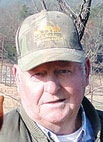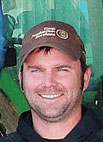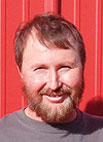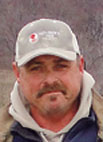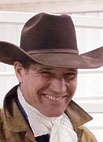Ropes, Roping Stock and Chicks
Don Smith of Hogden, Okla., was raised in Kiowa, home of famous country-western singer and TV personality Reba McEntire. In fact, Reba and Don are cousins with Reba’s father, Clark, being a major influence in Don becoming a professional cowboy and in meeting his wife. Don and Susan met at a rodeo in Wilburton, Okla., where both were competing and with both eventually becoming professional cowboys.
Cashing in on Crops and Cattle
This is the story of a young couple deciding to build a farm from scratch, something unusual in this day and age. Cody Hays, now of Gentry, Ark., met his future wife Carrie when he was a junior in college at the University of Arkansas. Cody said, “Land prices are too high to make a purchase viable for expansion and leased land is competitive.” Cody and Carrie, however, were undeterred.
Cattle from Our Past
Two couples, Bryan and Amber Bench, and Randy and Nancy Williams, have combined their skills and resources to form Nature’s Green Grass Farms. Their goal is to raise tender and tasty grass-fed beef using nothing but what nature provides. They have chosen Devon cattle as the breed for their Everton, Ark., operation. The interesting thing about Devon cattle is that they were brought to America for the first time in 1623. If this rings a historic bell, that’s because the Pilgrims landed here in 1620, so it was just a few years later that three Devon heifers and a Devon bull first hoofed it onto American soil. The herd that the Benches and the Williamses now have is descendants of these cattle. Bryan is proud to call Devons a heritage breed, pure, not crossed with another breed. A few changes have been made since the first four were consigned from Devonshire, England, to the colonies. For example, American stockmen have developed a polled strain of purebred Devons. Interestingly enough, this traces back to a bull born in 1915 in Concordia, Mo., not too far from here.
A Beef Herd Built from Roping
Farmers’ livestock herds change as their lives change. This is what’s happening to Derrick and Simonnee Butler who lease 60 acres in Bentonville, Ark., and run some cattle on Simonnee’s fathers land. One defining factor in the nature of their cattle operation is rodeoing. The couple first met in 2003 when Derrick judged some rodeos that Simonnee competed in. The couple’s paths crossed again three years later when both were competing in another rodeo.
Better Bulls Meet Market Demand
“We’re gonna raise what the market demands.” And that is just what Gary and Marilyn Townsend have done. Located just outside of Rose Bud, Ark., the Townsends raise Brangus cattle and market those cattle over the southeastern United States to producers looking to make improvements in their herd books and their checkbooks.
More Than Genetics
The Limousin breed ranks as one the the third largest breeds in the United States and is found in 70 countries. The crossbreeding of Limousin and Angus, aka Lim-Flex, has proven to be a valuable breeding resource both at home and work for George Hubbard of Miami, Okla. For the past 16 years it has been a hobby and employment for the Southern Division Magness Land and Cattle manager. The business is owned by Gary Magness and headquartered in Platteville, Colo., with a companion operation in Miami. “This is a 24/7 operation. It is great that I live nearby because there is always something to do every day of the week. Even a day off is a work day since the cattle still have to be fed,” said George.
Working with Mother Nature
Years ago a popular TV commercial carried the tagline of “It’s not nice to fool Mother Nature.” Todd Weyl, who lives in Fayetteville, Ark., on a small purchased acreage but runs his parents’ 228-acre farm in Lincoln, Ark., has learned through trial and error and through extensive observation and reading that allowing Mother Nature to have dominance in farming leads to a paradigm shift. Todd views agriculture as an interdependent system where superimposing solutions to problems may solve a particular problem but harms the system. Todd said, “This is not about going ‘natural’ for the environment’s sake but increasing profitability by decreasing costs naturally.”
Banking on Details
Tony and Linda Nichols own and lease 2,000 acres just outside of Wainwright, Okla., in Council Hill where they raise a commercial herd with 400 mommas. The land where the Nichols’ house sits was purchased by Tony’s grandfather 100 years ago and added to as the years have gone by. Tony said, “I was born a rancher and really wanted to live with my grandparents because my folks lived in town.” Tony and Linda have been married for 53 years after meeting at church when 5 or 6 and becoming sweethearts in high school although they went to different high schools. When Tony asked Linda to go on their first date at his high school’s talent show, Linda wasn’t sure if he was asking her out or selling her a ticket. Linda said, “That date was it, and we’re still dating now.” The couple has three girls, seven grandchildren and one great granddaughter with another on the way. Colt Watson, the oldest grandson, is a fulltime employee.
Farmer, 4-Her and Author
Age is just a number for Honey Reese, 17 of Sallisaw, Okla. Honey may only be a high school senior set to graduate in May, but she’s taking on and accomplishing her dreams.
Cow Mumbling
When Robert Redford needed an adviser for the movie, The Horse Whisperer, he found Curt Pate – a world-renowned stockmanship expert. When Heath Kohler from Ratcliff Ranches in Vinita, Okla., needed an adviser for low stress cow handling, he and Dr. Clint Gardner, a veterinarian in Pryor, Okla., found the “cow mumbler,” as he is known. The owner of Ratcliff Ranches, Jim Ratlciff, liked the idea and hosted the event. Heath and Dr. Gardner contacted Kara Jett of Boehringer Ingelheim Vet Medica, Inc., and Heather Buckmaster of the Oklahoma Beef Council and all together sponsored the event which discussed animal health and how to handle cattle.

